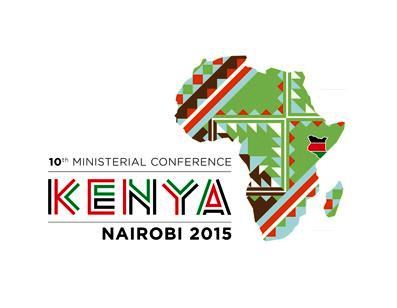
International recommendations, standards and tools have a crucial role to play in the effective implementation of the World Trade Organization’s (WTO) Trade Facilitation Agreement (TFA). This was the key message agreed by international experts at an event organized by UNECE jointly with the African Regional Standards Organization and other international organizations on the side-lines of the 10th WTO Ministerial Conference in Nairobi, Kenya. Daniel Blockert, Sweden’s Ambassador to the WTO, who moderated the morning session, said: “the beginning of work on trade facilitation is a crucial time for countries to implement international standards since they provide a solid framework for scaling up from national to regional and global facilitation efforts and ensure the harmonization of trade information flow between countries”.
A wide range of international and regional organizations, including UNECE, develop and make available standards, recommendations and guidelines that support the reduction of border delays and/or the exchange trade information electronically between countries. A stronger political will and a coordinated effort by the public and private sectors to fully implement these standards would bring major benefits to both trade and governments.
UNECE through its Centre for Trade Facilitation and Electronic Business (UN/CEFACT) has been working for more than four decades to develop instruments that facilitate trade. These include:
- The Electronic Single Window (UNECE Recommendation No. 33), which allows all the information related to an export or import to be submitted in a single entry point;
- Standards (e.g. UN/EDIFACT, UN/LOCODE), which serve as a common language for transactions and the exchange of trade data between countries; and
- Tools and guidelines for governments and traders interested in implementing trade facilitation (e.g. Trade Facilitation Implementation Guide).
During the event, global experts shared their views on an array of standards, recommendations and tools that help countries cut red tape in international trade. One such tool is the United Nations Trade Facilitation Implementation Guide – TFIG (tfig.unece.org), a comprehensive online compendium of trade facilitation standards and instruments from all key international organizations. The UN TFIG helps countries identify, examine and select available solutions and possible paths for their trade facilitation reform efforts. During 2014-2015, close to 250,000 unique visitors browsed the TFIG online knowledge platform and more than 1.5 million pages were viewed.
The participating UN organizations also reaffirmed the key role of national and international standards bodies and quality infrastructure institutions in trade and trade facilitation and the particular need for supporting the development of standards and quality management institutions in low and middle-income countries.